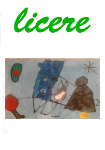Popular Culture Games in Brazil and Uruguay
A Study From an Action-Research Proposal in Physical Education at School
DOI:
https://doi.org/10.35699/1981-3171.2013.662Keywords:
Play and Playthings, Physical Education and Training, Leisure ActivitiesAbstract
The aim of the study was to analyze and compare the popular culture games expressions and its interchange between groups of two different countries, in Physical Education at school. The methodology was based on the case study research. The results showed that the popular games are incentive for children build and share its learning; in some contexts are suffering certain forgetfulness/ignorance and are strongly influenced by the gender differences. It is suggested that PE at school, in Brazil and Uruguay, explore the possibilities of it teaching, discussing these aspects, for not omitting its knowledge in the children corporal movement culture construction.
References
BARDIN, L. Análise de conteúdo. ed. rev. atu. Lisboa: Edições 70, 2010.
BRASIL. Medida Provisória nº 472/09, de 15 de dezembro de 2009. Institui [...] o Programa Um Computador por Aluno PROUCA e institui o Regime Especial de Aquisição de Computadores para uso Educacional RECOMPE [...]. 15 dez. 2009. Disponível em: <http://www.planalto.gov.br/ccivil_03/_ato2007- 2010/2009/Mpv/472.htm>. Acesso em: 03 jul. 2013.
BRASIL. Lei nº 12.249/2010, de 11 de junho de 2010. Institui [...] o Programa Um Computador por Aluno - PROUCA e institui o Regime Especial de Aquisição de Computadores para Uso Educacional – RECOMPE [...]. Disponível em: <http://www.planalto.gov.br/ccivil_03/_ato2007-2010/2010/lei/l12249.htm>. 11 jun.
Acesso em: 03 jul. 2013.
BROUGÈRE, G. A criança e a cultura lúdica. In: KISHIMOTO, T. M. (Org.). O Brincar e suas Teorias. São Paulo: Pioneira, 1998. p. 19-32.
FARIA JUNIOR, A. A reinserção dos jogos populares nos programas escolares. Motrivivência, Florianópolis, v.8, n. 9, p. 44-65, dez. 1996.
FREIRE, P. Pedagogia da autonomia: saberes necessários à prática educativa. 28. ed. São Paulo: Paz e Terra, 2003.
GONZÁLEZ, F.; FENSTERSEIFER, P. Entre o “não mais” e o “ainda não”: Pensando saídas do não lugar da EF escolar II. Cadernos de Formação RBCE, Campinas, v.1, n.2, p. 10-21, março 2010.
HALL, S. A identidade cultural na pós-modernidade. 7. ed. Rio de Janeiro: DP&A, 2003.
IVIC, I. The play activities of children in different cultures. In: IVIC, I.; MARJANOVIC, A. (Org.). Traditional games and children of today. World Organization for Early Childhood Education (OMEP) – United Nations Educational, Scientific and Cultural Education (UNESCO). Belgrade: Savez drustava psihologa SR Srbije, 1986. p. 83-91.
KISHIMOTO, T. M. O jogo e a educação infantil. São Paulo: Pioneira Thomson Learning, 2002.
________. Jogos infantis: o jogo, a criança e a educação. 10. ed. Petrópolis: Vozes, 2003.
RINALDI, I.; LARA, L.; OLIVEIRA, A. Contribuições ao processo de (re) significação da Educação Física escolar: dimensões das brincadeiras populares, da dança, da expressão corporal e da ginástica. Movimento, Porto Alegre, v.15, n.4, p. 217-242, out./dez. 2009.
ROBINS, K. Tradition and Translation: national culture in its global context. In: CORNER, J.; HARVEY, S. (Org.). Enterprise and heritage: Crosscurrents of national culture. Londres: Routhledge, 1991. p. 21-44.
THIOLLENT, M. Metodologia da pesquisa-ação. 4. ed. São Paulo: Cortez, 1988.
THOMAS, J.R.; NELSON, J.K.; SILVERMAN, S.J. Métodos de pesquisa em atividade física. 5. ed. Porto Alegre: Artmed, 2007.
URUGUAI. Decreto Presidencial 144/007, de 18 de Abril de 2007. [...] Créase el Proyecto Conectividad Educativa de Informática Básica para el aprendizaje en Línea (CEIBAL) […]. 18 abril 2007. Disponível em:
<http://archivo.presidencia.gub.uy/_Web/decretos/2007/04/EC579_18%2004%202007_ 00001.PDF>. Acesso em: 03 jul. 2013.
YIN, R. Case study research: design and methods. 4. ed. California: SAGE Publications.

